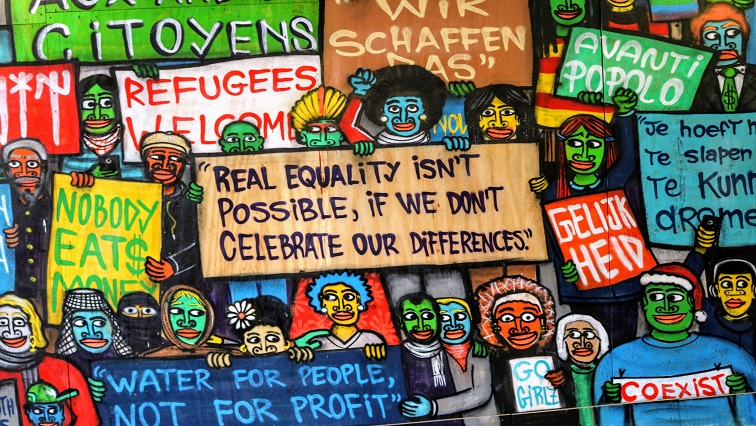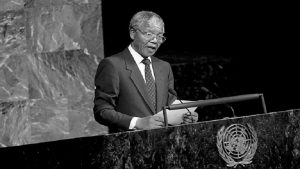For many years, migration has been one of Europe’s most contentious policy issues. A survey conducted by Ipsos in 28 countries on people’s attitudes toward refugees has shown that sentiments toward refugees have shifted since last year’s Ukraine crisis.
Globally, the number of people displaced by conflict or persecution has surpassed 100 million, according to a United Nations report. Since Russia’s invasion nearly four months ago, more than 6.5 million people have fled Ukraine.
According to a survey, 78% of people in 28 countries believe refugees should be able to seek asylum elsewhere.
Africa is home to approximately 30 million internally displaced people, refugees, and asylum seekers, accounting for nearly one-third of the world’s refugee population.
Ongoing crises in Ethiopia, Burkina Faso, Nigeria, and the Democratic Republic of the Congo, have all contributed to this staggering figure.
More than two-thirds of the population in sub-Saharan Africa needs humanitarian assistance. 8.3 million people, including refugees, are expected to face severe acute hunger this year, according UN’s World Food Programme, as conflict is forcing people to flee the rural areas and head for safety in towns and cities.
The UN agency says most of the refugees it assists in East Africa have already had their rations reduced by up to 50%. As food prices rise in parts of West Africa, such as Burkina Faso, Cameroon, Chad, and Mali, the amount of food distributed decreases significantly.
World Refugee Day is an occasion to raise awareness of the unique needs of refugees and people on the move, as well as the challenges they may face during their journeys. The theme of this year’s event is – The right to seek safety.
SABC News Morning Live speaks to the Head of External Engagement at the UNHCR Regional Bureau for Southern Africa, Joan Allison as well as Sandra B Zaca who arrived in South Africa in 1995 as a refugee from the Democratic Republic of Congo where civil war had broken out.
Afro-phobia
In contrast to the Ipsos research on public openness to refugees, the Southern African Institute for Responsive and Accountable Governance says that South Africa is experiencing Afro-phobia due to corruption.
As the planet observed World Refugee Day in June, the Institute claims that all nations are obligated to receive and host refugees as part of the UN family.
According to Institute Chairperson Tseliso Thipanyane, South Africa is experiencing Afro-phobia as a result of corruption.
“In terms of the constitution, there should be no difference in voting rights between asylum seekers, refugees, and nationals.
“Unfortunately, due to the problems of non-nationals and corruption in our country. There is also an increasing Afro-phobia toward African migrants, which blurs the distinction between foreigners, asylum seekers, and people who are undocumented in our country, and I believe it is important for us to recognize that distinction.”
Ivorian refugees
Commemorating the 2022 edition of Refugees Day in Ivory Coast, the head of UN refugee agency, Filippo Grandi oversaw the repatriation of the last batch of Ivorian refugees in Liberia. Some had been living in Liberia for more than 20 years. Refugees started streaming across the border into Liberia in 2010 after post-election violence in Ivory Coast.
Some 268 Ivorian refugees in Liberia were repatriated. Grandi says those who choose to remain in Liberia will now be treated as ordinary Ivorian citizens living in a foreign country.
UN praises Chad and Uganda
On World Refugees Day, the United Nations says more countries should educate refugees in national schools to help them integrate. It praises Chad and Uganda as poor countries setting an example.
Uganda has the most refugees in Africa, with 1.4 million. The country said this year that it brought together humanitarian and development organisations to create mixed schools for refugees and host communities.
Chad, which hosts approximately 450 000 refugees, has also developed a temporary education plan for them while adapting the national system to include them, a first in Africa, according to UNESCO.
The government has sent Chadian teachers to refugee camps to help with the transition, and this year 108 refugee schools were converted into regular public schools, which will benefit locals as well.
According to UNESCO, 4 million child refugees were absent from school in 2017. World leaders in 2016 agreed to ensure that all refugee and migrant children receive an education.
“The longer they stay apart, the more alienated they feel,” says UNESCO’s director. UNESCO says only six out of ten refugee children were enrolled in primary school last year, and one out of every four were enrolled in secondary school.
According to experts, education remains a low priority in many places where people have fled the conflict.
Significance of World Refugee Day: Dr Djibril Diallo
Refugees in Numbers:
- Each year, millions of people are forced to flee because of conflict, violence, disasters and climate change
- 1 in every 88 people on earth has been forced to flee
- More than 100 million people around the world forced to flee war
- In Africa, approximately 30 million internally displaced people, refugees, and asylum seekers
- There are also millions of stateless people
- In 2020, at least 48 million people worldwide were internally displaced due to conflict and 7 million due to disasters
- In 2018, South Africa hosted approximately 273 488 refugees and asylum seekers, with 84 percent coming from Sub-Saharan Africa. [Source: unhcr]
Offshore asylum programmes
The refugee matter has also been in the news in recent weeks, as the European Court of Human Rights stopped the first plane from departing for Rwanda. Britain Home Secretary Priti Patel said preparations for more flights have already begun. Despite the outrage, Britain is not the first country to send asylum seekers overseas. The Church of England has denounced the policy as “immoral”.
The UN refugee chief has called the plan “catastrophic,” and media reports say Prince Charles has privately described it as “appalling.”
Despite public outrage, Britain is not the first country to send asylum seekers abroad. Here are some countries that have taken a similar approach to offshore refugees:
Australia
Australia’s offshoring asylum policy has been criticised for harsh conditions. More than 4 000 asylum seekers’ children have been sent to Manus and Nauru for processing. Aid groups cite abuse by guards and self-harm and depression among detainees. Fourteen people have died in the island camps, including through suicide.
Australia closed the facility on Manus Island last year after Papua New Guinea’s Supreme Court ruled it was illegal, but about 105 people still remain Papua New Guinea. A further 112 asylum seekers are currently living within the Nauruan community, according to the refugee council.
Israel
Israel’s controversial policy to send refugees to Rwanda and Uganda was scrapped in 2019. About 20 000 people either returned home or went to one of the East African countries. Rights groups criticised for sending refugees to countries where there were no guarantees over their safety. Most escaped and paid people smugglers to make the dangerous journey to Europe.
Research conducted by the University of Oxford and the International Refugee Rights Initiative found that many deported to Rwanda and Uganda had their travel documents taken on arrival and were held in hotels guarded by armed men.
European Union
More than 3000 Libyan asylum seekers have been transferred to Niger and Rwanda as part of a United Nations-funded scheme. Critics accuse the EU of attempting to reduce the number of refugees arriving in Europe by shifting the crisis to poor African countries.
As part of broader efforts to prevent refugees from crossing the Mediterranean, the European Union indirectly supports offshore asylum programs. The EU has paid billions of dollars to Turkey to keep refugees from reaching Greece, and it has funded the Libyan Coast Guard, which pushes migrant boats bound for Europe back to North Africa. It also contributes to the funding of UN-run asylum-processing centres in Niger and Rwanda. Despite its criticism of the United Kingdom, the UN says the arrangement is reasonable.
Denmark
Denmark has introduced increasingly harsh immigration policies over the last decade. It is currently negotiating with Rwanda. The new law was criticised by refugee groups as irresponsible and demonstrating a lack of solidarity with those in need, and it was also criticised by the United Nations and the European Commission.
A deal with Rwanda, according to Danish government officials, would “ensure a more dignified approach than the criminal network of human traffickers that characterises migration across the Mediterranean today.”
Denmark is exempt from some EU regulations, including asylum standards, due to an opt-out policy.
According to the UNHCR, on the basis of public health measures, at least 20 countries around the world continue to deny asylum to people fleeing conflict, violence, and persecution. Some of these countries make inconsistent or arbitrary exceptions for asylum seekers’ entry.
Sarah Motha is the Vulnerable group’s manager at Foundation for Human Rights:
-Reporting by Reuters






